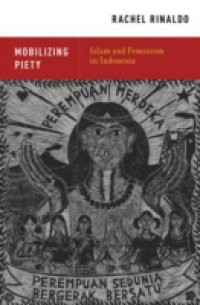Islam and feminism are often thought of as incompatible. Through a vivid ethnography of Muslim and secular women activists in Jakarta, Indonesia, Rachel Rinaldo shows that this is not always the case. Examining a feminist NGO, Muslim women's organizations, and a Muslim political party, Rinaldo reveals that democratization and the Islamic revival in Indonesia are shaping new forms of personal and political agency for women. These unexpected kinds of agency draw on different approaches to interpreting religious texts and facilitate different repertoires of collective action - one oriented toward rights and equality, the other toward more public moral regulation. As Islam becomes a primary source of meaning and identity in Indonesia, some women activists draw on Islam to argue for women's empowerment and equality, while others use Islam to advocate for a more Islamic nation. Mobilizing Piety demonstrates that religious and feminist agency can coexist and even overlap, often in creative ways.

